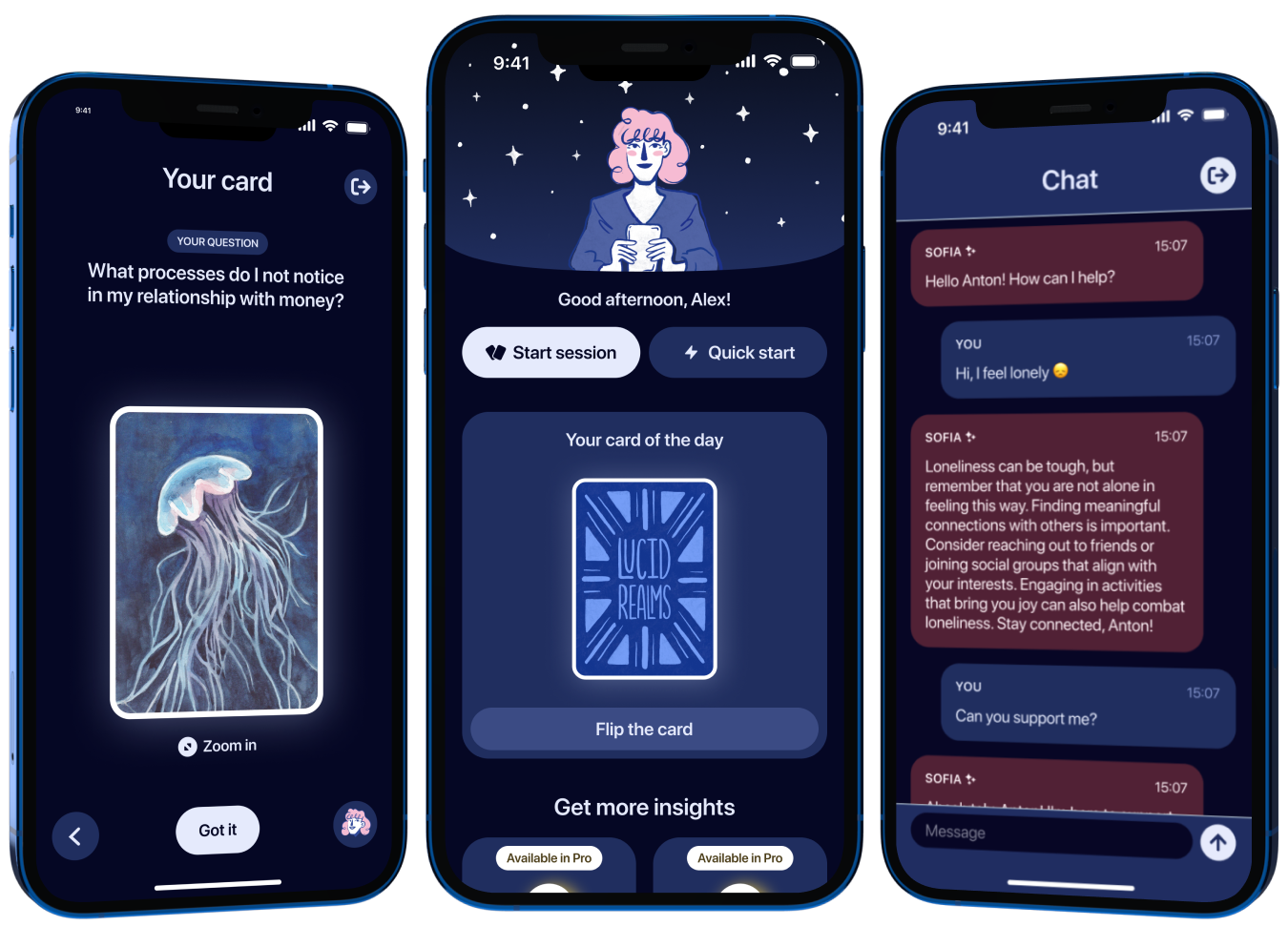We use cookies to give you a tasty experience!
Cookie Settings
We use cookies and data to:
Deliver an excellent service
Track outages and issues
Protect against spam, fraud and abuse
Measure site statistics to enhance the quality of our services
By continuing to browse our site, you’re agreeing to our use of cookies.
Deliver an excellent service
Track outages and issues
Protect against spam, fraud and abuse
Measure site statistics to enhance the quality of our services
By continuing to browse our site, you’re agreeing to our use of cookies.
Q&A on Panic Attack
What is a panic attack?
A panic attack is a sudden onset of intense panic, which can occur either during a period of generalized prolonged anxiety or in a state of complete calmness. Panic attacks happen unexpectedly and are accompanied by a strong sense of fear and distress. The person may experience shortness of breath, a feeling of imminent fainting, fear of dying, or losing control of their mind.
Why does it occur?
Panic attacks can occur as a result of suppressing emotions for an extended period. Repressed feelings or unexpressed emotions, often anger, can build up without an outlet until they manifest in a panic attack, which provides temporary relief.
Panic attacks are also common among anxious individuals and those who try to control uncontrollable things, such as the surrounding environment or other people. When these individuals find themselves in situations like being in the subway, on a plane, or in an open area, they may lose their sense of control over the situation and experience increasing anxiety that turns into panic.
Panic attacks are also common among anxious individuals and those who try to control uncontrollable things, such as the surrounding environment or other people. When these individuals find themselves in situations like being in the subway, on a plane, or in an open area, they may lose their sense of control over the situation and experience increasing anxiety that turns into panic.
Who is susceptible to panic attacks?
Panic attacks are more prevalent among teenagers and young adults (especially women), while they are less common among the elderly. However, panic attacks can occur at any age, including in children, though it may be challenging for parents to recognize them.
What does a person feel during a panic attack, and what happens to the body during that moment?
The most common sensations during a panic attack include a fear of death, shortness of breath, dizziness, chest tightness, heart palpitations, trembling, cold sweats, and sometimes a combination of these symptoms. These sensations can be exacerbated by the individual's surrounding environment.
Let's take the example of the subway, a place where many people experience panic attacks. The subway is typically hot and stuffy, causing a person to feel suffocated, breathe rapidly, and experience a faster heartbeat. The brain searches for a source of danger but cannot find one. The body interprets this state as anxiety, leading to a panic attack: blood vessels constrict, and the "fear hormone" adrenaline is released, which can be both a triggering factor and a consequence of the attack.
Let's take the example of the subway, a place where many people experience panic attacks. The subway is typically hot and stuffy, causing a person to feel suffocated, breathe rapidly, and experience a faster heartbeat. The brain searches for a source of danger but cannot find one. The body interprets this state as anxiety, leading to a panic attack: blood vessels constrict, and the "fear hormone" adrenaline is released, which can be both a triggering factor and a consequence of the attack.
How long can a panic attack last?
Unlike generalized anxiety disorder, where a person experiences fear and anxiety for an extended period, a panic attack typically lasts no more than 15-20 minutes. Unpleasant sensations may persist longer, but this is often the result of our subconscious mind engaging in an emotional spiral, where a person reinforces fear by giving in to it.
What can trigger a panic attack?
A panic attack can be triggered by anything: smells, sounds, objects related to phobias (such as insects, snakes, enclosed spaces), anything that reminds the person of previous panic attacks or unpleasant situations. After experiencing a panic attack in a particular place or under certain circumstances, an individual may associate feelings of anxiety and fear with that location or situation, solidifying them as danger signals. When they find themselves in a similar place again or encounter a familiar smell or sound, they may experience a sense of anxiety without consciously realizing what triggered it.
How do panic attacks affect daily life?
The most common consequence of panic attacks is restrictive behavior. A person may start avoiding places where they experienced (or might experience) panic attacks. They may stop using elevators, avoid taking the subway, or refuse to fly on airplanes. They might plan their vacations based on whether they can reach their chosen destination by car or train. Some individuals create specific routes from point A to point B, for example, using only surface transport or ensuring several hospitals are on their way. In severe cases, people might even stop leaving their homes, fearing that they will feel unwell and no one will be there to help them.
Is there a connection between diet, harmful habits, and panic attacks?
There is some connection. For instance, even small amounts of alcohol or caffeine can trigger a panic attack. Regarding food, spicy meals can cause blood vessels to constrict, making a person feel hot – a state that the body interprets as fear. However, these are more indirect factors, and the root of the problem lies primarily in the psychological state.
I experienced a panic attack once. Will it definitely happen again?
In most cases, panic attacks can recur. Sometimes, a person may experience panic attacks during a particular period of their life and then suddenly stop having them. However, it is more common for panic attacks to be part of an extended history, disappearing for a year or two before resurfacing.
I feel a panic attack approaching. How can I help myself in that moment?
During a panic attack, the first step is to focus on your physical state: concentrate on your breathing (preferably breathe from your abdomen, emphasizing exhalation), try to feel your body and be aware of its presence. To do this, stand on both legs and "ground" yourself (imagine that fear is passing through you into the ground, like an electric current). You can also grip onto something or start shaking your hands to release tension.
If someone is nearby, it's better to tell them that you're experiencing a panic attack and need assistance. You can try to verbalize your feelings: speak out loud about each sensation and tell others what scares you. By vocalizing your fear, you can reduce anxiety, which may then allow you to move on to coping techniques.
If someone is nearby, it's better to tell them that you're experiencing a panic attack and need assistance. You can try to verbalize your feelings: speak out loud about each sensation and tell others what scares you. By vocalizing your fear, you can reduce anxiety, which may then allow you to move on to coping techniques.
They say that eating a lemon can help distract from a panic attack. Is it true?
Eating a lemon or anything sour is one way to focus on physical sensations. There are other ways to distract yourself, such as visually searching for only blue objects or creating a resourceful place – an imaginary space where you feel comfortable and safe. However, a person can engage in these practices only after the panic has subsided a bit. It's important to understand that at the beginning of a panic attack, the main task is to regain a sense of reality and awareness of one's body.
Can I lose consciousness or die during a panic attack?
You cannot die from a panic attack, but it is possible to faint if the constriction of blood vessels, often associated with panic attacks, becomes too severe. During a panic attack, it's essential to constantly remind yourself that fear is just an emotion, and while it strongly influences your consciousness, it won't cause death. Alternatively, if possible, find someone you can call during a panic attack, and they can talk you through it over the phone.
I encountered a situation where another person had a panic attack. What can I do to help them?
First and foremost, show that you are there and supporting them. You can place your hands on their shoulders and reassure them that everything is okay, they are safe, and the panic attack will soon pass. If the panic attack happens to someone close to you, you can hug them with both arms, as if embracing and shielding them from their surroundings. This can help shift their focus from emotions and fear to tactile perception.
Can panic attacks be treated?
Yes, panic attacks can and should be treated. To do so, it's essential to seek help from a psychiatrist or psychotherapist. Psychotherapists work with both medication and therapeutic treatments.
While it's possible to attempt self-help for panic attacks, it can be very challenging, and the success will depend on the frequency and intensity of the attacks. There are support groups where people discuss their fears and share their experiences in dealing with panic attacks, but this cannot replace personal therapy. It's crucial to remember that one of the underlying causes of panic attacks is often a fundamental mistrust of the world, and building this trust requires long-term work with a psychotherapist.
While it's possible to attempt self-help for panic attacks, it can be very challenging, and the success will depend on the frequency and intensity of the attacks. There are support groups where people discuss their fears and share their experiences in dealing with panic attacks, but this cannot replace personal therapy. It's crucial to remember that one of the underlying causes of panic attacks is often a fundamental mistrust of the world, and building this trust requires long-term work with a psychotherapist.
Are there medications for panic attacks?
Certainly. The treatment for panic attacks often involves the use of antidepressants, antipsychotics, or sedatives. Some individuals may find relief with simple sedatives, but more commonly, a combination of medications is used, such as an antidepressant along with a sedative antipsychotic, which has proven to be the most effective. The selection of these medications is highly individualized.
It is possible to try managing panic attacks without medication, but it may not always be feasible. A person may undergo extended psychotherapy that doesn't yield the desired results, only to find out that their body simply lacks serotonin. In such cases, medication becomes necessary.
It is possible to try managing panic attacks without medication, but it may not always be feasible. A person may undergo extended psychotherapy that doesn't yield the desired results, only to find out that their body simply lacks serotonin. In such cases, medication becomes necessary.





